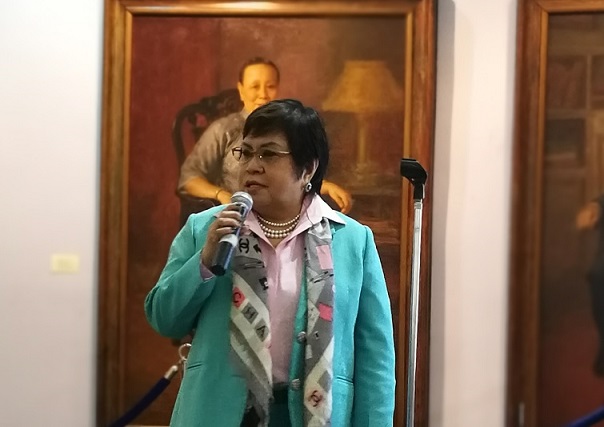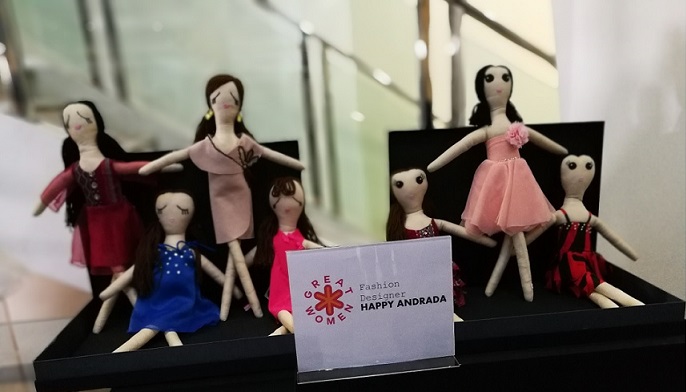
I asked this question to Dr. Aziza al Hibri in a round-table discussion together with former Sen. Edgardo Angara, Philippine Star columnist and Carol P. Araullo who writes for Businessworld.
“Home”, was Dr. Al Hibri’s answer.
“Your home can be a paradise or hell depending on how the husband understands your dignity, your rights, and your value,” she said.
She said there are communities who believes that the man is the head of the family and they can strike the wife.
Al Hibri, the first Muslim woman to become a law professor in the United States and is professor emeritus of law at the University of Richmond, is the founder of Karamah, a Washington-DC based organization of American Muslim lawyers and law faculty focused on human rights and gender issues in the Muslim world.
The author of “Islamic Worldview: Islamic Jurisprudence. an American Muslim Perspective” she was the lead speaker a conference by the Karamah Institute for Muslim Women on Law, Leadership, and Conflict Resolution at Miriam College in Quezon City.
Al Hibri stressed the importance of education for both women and men. “People should know their rights and stand up for it,” she said.
She also stressed that Islam, derived from the Arabic root “Salema”, which means peace which is the opposite of violence.
Al Hibri’s views complement observations expressed in another forum, “Bridging partnerships in empowering vulnerable women and girls” at the Yuchengco Museum in Makati organized by the Women Economic Empowerment, Zonta Club of Alabang, Echosi Foundation.
Atty. Mary Jane N. Real, of the Urgent Action Fund for Women’s Rights- Asia Pacific noted that the global theme for International Women’s Day, which is being celebrated this month is “Time is Now: Rural and Urban Activists Transforming Women’s Lives” juxtaposes rural and urban activists.

She said it also draws attention to the interconnectedness of contemporary issues besetting women across geographies: an urban poor woman and her family evicted out of the slums, and inadequately relocated in Metro Manila is in a similar distressed state as a Cambodian woman and her family dispossessed of land and livelihood due to State-sanctioned land grabbing in Battambang, Cambodia; the fear felt by lesbians persecuted by fundamentalist groups in Aceh, Indonesia is mirrored in the faces of Muslim women and their families attacked recently by Buddhist zealots in Kandy, Sri Lanka; the labeling of women human rights defenders as ‘sorcerers’ in the highlands of Papua New Guinea is the same form of modern-day ‘witch-hunting’ employed against those who critique the government. “
She cited the first global systematic study of the prevalence of violence against women and girls released by the World Health Organization and other partners in 2013, which revealed that 35 percent of women worldwide have experienced either intimate partner or non-partner sexual violence.
“Higher than the global average, prevalence rates in Southeast Asia was estimated at 40 percent. In Western Pacific, it was close to 30 percent, although in subsequent studies the percentage doubled, between 60 percent and 68 percent,” she also said.
“The level of violence, however, varies greatly between countries and even within countries,” she added.
She cited as example data from Asia Pacific specifically on men’s perpetration of intimate partner violence show a dramatic range between 26 percent (Indonesia rural site) and 80 percent (Bougainville, Papua New Guinea).
Lawyer Lorna Kapunan, who spoke about “The importance on why Violence against Women needs to meet with Women Economic Empowerment” observed that there are many instances when women economic empowerment induces violence from men.
“Some men feels inadequate, powerless when women become economically empowered and independent and they compensate (their weakness) through brute force,” she said.

Kapunan said “programs aimed at empowering women economically should also consider how best to include violence prevention initiatives particularly in conservative settings.”
She noted that women’s ownership of land and property is more strongly associated with a reduction in violence than employment as it acts as a “tangible exit option’ strengthening women’s fallback position and therefore bargaining power within marriage and acts as a deterrent to marital violence.”
The WEE-ZCA-VAW event was also an occasion to launch the Great Doll Women Advocacy where designers Rajo Laurel and Happy Andrada and artist Jeannie Javelosa showcased the specially designed “Happy” and “Angel” dolls which will benefit vulnerable women and girls.
The dolls are available at the Great Women Café and Showroom at the ground floor of Tesoro’s building on Arnaiz st. in Makati City.
domestic violence is not just problem for women, it’s problem with men too. men and women should both address the issue of violence, why it’s not alright for men to hit women, and vice versa. violent men begets violent sons who then inflect violence on others, begetting daughters conditioned to accept violence as way of life. though there are men and women who rise above violence and lead meaningful lives.
men and women have been killed and murdered because of domestic violence, women more than men. it’s society’s problem and should be addressed holistically.
we should have men who are good to women as role models, men who dont use violence to assert themselves. we need men to tell their sons that it’s not okay to hit girls, not okay to bully and demean girls too. start them early and start them young, no means no.
Agree, agree, ROC